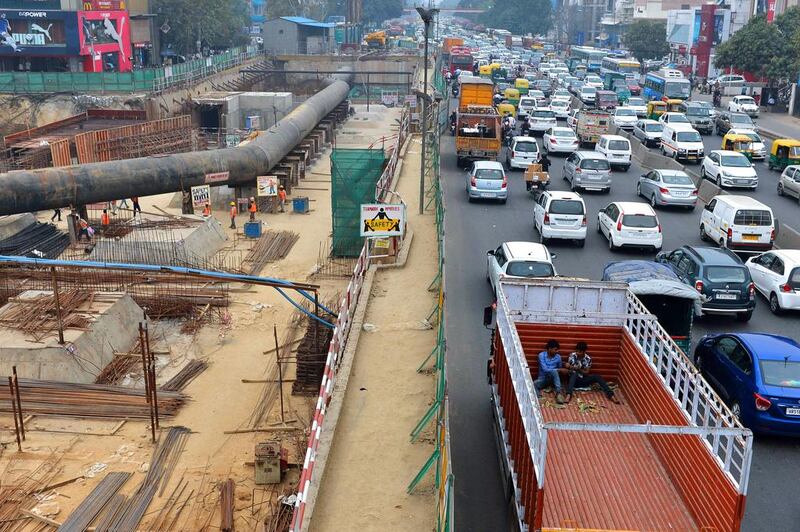MUMBAI // Expectations are riding high for Narendra Modi’s first full-year budget on Saturday as investors and companies hope that India’s government will deliver a wave of measures to make it easier to do business in the country and boost economic growth.
Plans for a new uniform goods and service tax, a rethink of India’s costly food and fuel subsidy schemes, incentives for the manufacturing sector and steps to improve infrastructure are among the main announcements that business leaders will be looking for.
This is Mr Modi’s second budget since he came to power last May in a landslide victory won on the promise of boosting India’s economy and his business-friendly attitude. The first one was delivered just weeks after he came into office but was widely considered to be underwhelming, adding to the pressure for Saturday’s announcement not to disappoint.
“Expectations are sky high,” says Pranjul Bhandari, the chief India economist at HSBC. “Markets are expecting the government to stick to the ambitious fiscal consolidation path it has inherited, and yet revive economic growth.”
Improving GDP numbers, soaring stock markets and lower oil prices are all factors that are working in the government’s favour. The IMF has predicted that India’s economic growth will outpace China’s in 2016, and has forecast growth of 6.3 per cent for India this year, up from 5.8 per cent in 2014.
“The budget could be more relevant for the market than usual,” said Dhananjay Sinha, the head of institutional research at Emkay Global Financial Services, based in Mumbai. “There is little scope for the budget to disappoint.”
Arun Jaitley, India’s finance minister, will present the budget.
“We expect the main theme of this budget to be higher outlays on public investments, particularly railways and also roads, financed by ploughing back much of the savings from oil,” said Ms Bhandari. “Revising the goods and services tax road map with realistic deadlines and putting states at the heart of improving business and growth environment are other themes we expect to see.”
Hariprakash Pandey, vice president, finance and investor relations at HDIL, a property developer based in Mumbai, said that he would be looking out for plans to boost the affordable housing sector in the budget.
“We expect that this budget will be growth-orientated, one that would fuel in investments and would facilitate ease of doing business in India through reform measures and stable taxation policies,” he said.
Stock markets in India are normally closed on Saturdays but will open this Saturday for the budget. Stocks are expected to fall sharply if the budget fails to meet expectations, which might also prompt the Indian rupee to weaken.
The benchmark Bombay Stock Exchange index was flat yesterday, with the Sensex closing at 29,007.99 points. The index is up 5.5 per cent from the start of the year. The rupee, meanwhile, strengthened nearly 0.5 per cent yesterday to 62.02 per dollar in late afternoon Mumbai trading.
The Federation of Indian Chambers of Commerce and Industry, which conducted a survey of 150 companies, said that the respondents were “cautiously optimistic” and “pinning their hopes on the direction of reforms” from the budget.
“They expect the government to continue pursuing the broad economic agenda and take tangible steps towards its completion,” the federation said. “It was unanimously felt that the government should step up action on ease of doing business, and especially towards simplification of taxes in the forthcoming budget.”
business@thenational.ae
Follow The National's Business section on Twitter





